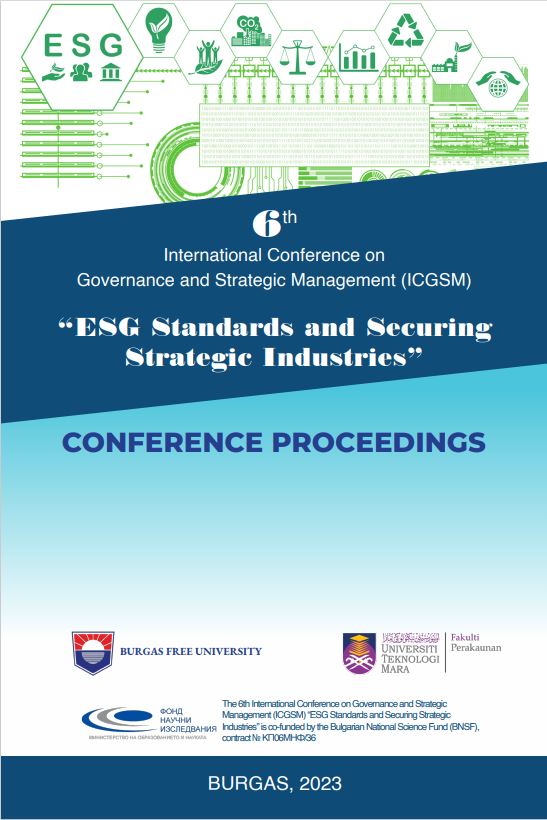SUSTAINABLE LEADERSHIP IN PRACTICE OF SPANISH AND POLISH LEADERS. A COMPARATIVE STUDY
SUSTAINABLE LEADERSHIP IN PRACTICE OF SPANISH AND POLISH LEADERS. A COMPARATIVE STUDY
Author(s): Ewa Wójcik, Elena Bulmer
Subject(s): Politics / Political Sciences, Economy, Business Economy / Management, Governance, Financial Markets, Socio-Economic Research
Published by: Бургаски свободен университет
Keywords: ESG; sustainability; sustainable leadership; triple bottom line; bee sustainable leadership philosophy
Summary/Abstract: The Anthropocene, the human age developing along industrialization has affected the environment to an unprecedented extent. For contemporary businesses to achieve a competitive edge and attract investors, it is necessary not only to be financially efficient but also to address environmental, social, and corporate governance (ESG) goals. The market valuation is increasingly based on other than tangible assets and market participants expect profit will be generated with ethical conduct, the value created for all stakeholders, and meeting social goals to achieve common well-being and a better future. It is well aligned with CSR principles and sustainable development goals, the frameworks of XXI century company operation. In this environment, leadership is a challenge to be inclusive of all stakeholders often with conflicting views. Moreover, globalization demands an expansion of organizational borders and the embracing of a variety of cultures. Technological advancements and innovations demand constant adaptation, improving qualifications of the staff that will need support, assistance, and mentoring. Sustainable leadership, therefore, requires a wide range of new skills and a multidimensional approach. The paper is a comparative study based on research carried out among Spanish and Polish leaders in 2022-2023. Its results provide insight into how a role of a leader is perceived in the two countries EU members and examine the main differences between their views and activities.
- Page Range: 43-53
- Page Count: 11
- Publication Year: 2023
- Language: English
- Content File-PDF

